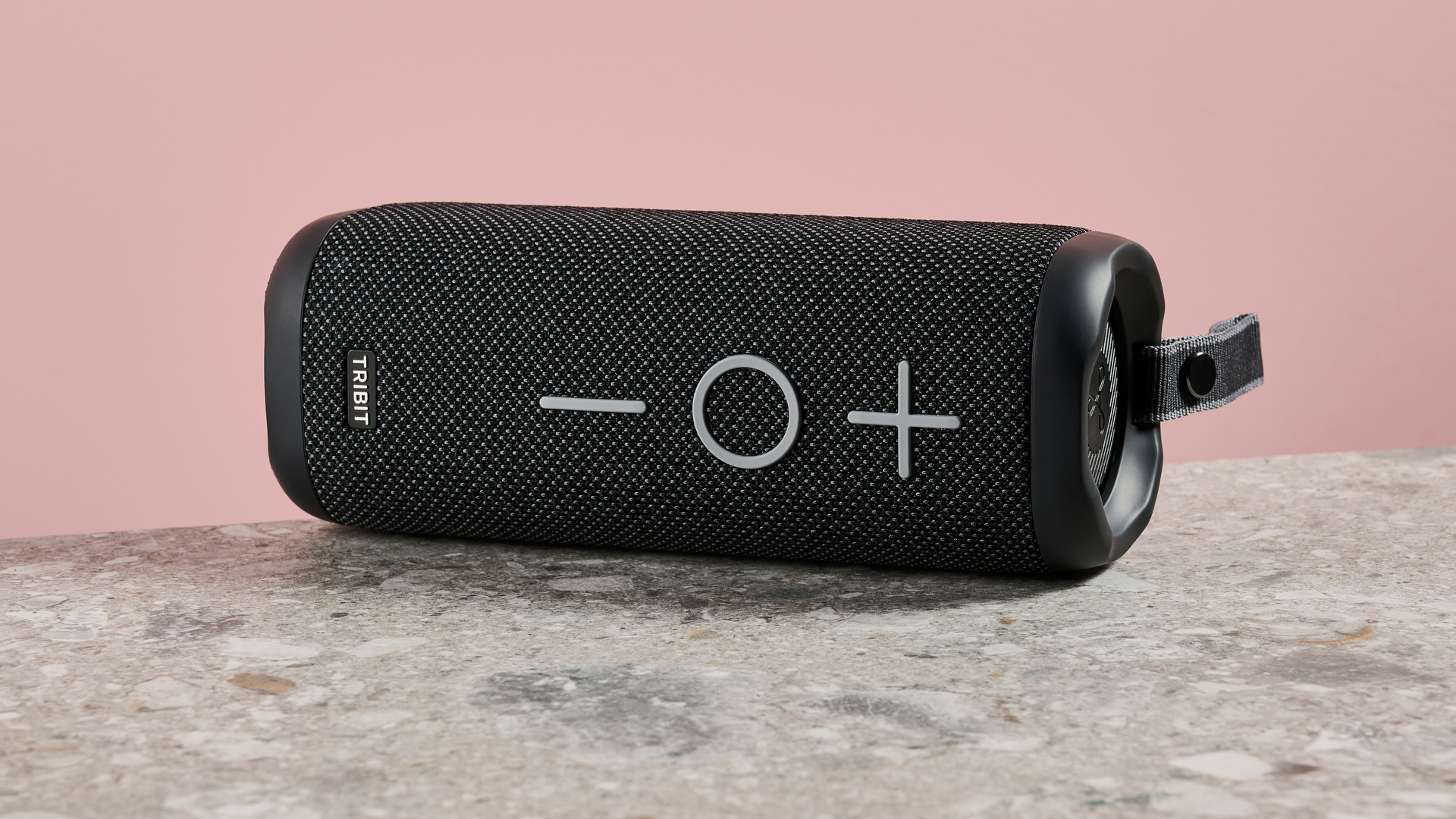
Tribit StormBox 2: two-minute review
The Tribit StormBox 2 is a cheap, hard-wearing Bluetooth speaker that's designed to deliver 360-degree sound for not much cash. The next-generation upgrade from 2018’s StormBox, it’s a pocket-sized portable speaker that sports unassuming looks and extreme levels of volume and battery life.
The Tribit StormBox 2 very much colors inside of the lines when it comes to design. It apes the near-cylindrical form factor of many of its rivals in the portable speaker space, even echoing the drop-resistant end caps and rubberized buttons that you’ll find on many speakers at the more affordable end of the market. Fortunately, this does make it rugged enough for use in the great outdoors; it will see off drops and dings, while its IPX7 water-resistance means it survived a minute-long dunking in the TechRadar testing tank without any ill effects.
Given its position at the cheaper end of the market, naturally it's missing some features that you’ll find on some of the best Bluetooth speakers. The StormBox 2 doesn’t offer Wi-Fi connectivity, nor less-lossy codecs such as LDAC or ALAC, which means you won't get audiophile-grade sound here.
Despite this, I was pleasantly surprised by the Tribit’s performance. Playing Black Eye by Allie X, the speaker did a great job of representing her vocals and those synthy stings, while that saw-toothed bassline delivers plenty of teeth. Given its frequency range only stretches as low as 70Hz though, it does lose a little presence in its low end – and, like many cheaper speakers, the treble can on occasion sound a little bit bright and overdriven.
On the plus side, like its less-rugged sibling, the Tribit XSound Plus 2, the StormBox 2 has some solid audio profiles that will let you polish the sound it produces and compensate for some of these weaknesses. XBass, in particular, gives everything much more oomph in the low end; I found myself increasingly just leaving it on as standard. And if you really want to get into the nitty gritty, the Tribit app offers a full nine-band EQ to allow you to tweak its sound to suit your favorite genres.
There are more features where that came from, too. One of the most noteworthy is its pairing options: you can link two StormBox 2s together, either to boost volume in party mode or to create a stereo pair, which offers decent separation and a convincing soundstage.
But perhaps the StormBox 2’s most impressive party trick is its battery life. Its stated 24-hour battery life makes the lasting power of Bluetooth speakers such as the JBL Flip 6 look ephemeral by comparison. And at lower volumes, at the 50% I regularly listened at, for example, I actually found it lasted far longer, stretching to as long as a preposterous 30 hours. This speaker has serious playing power.
Is it the best-sounding speaker on the market? Hardly. It displays some definite unevenness in the bass and treble, and the audio it produces isn’t the most detailed or expressive you’ll hear. But for its super-low price, it sounds far better than it has any right to – and the battery life alone makes it a solid investment. So, ultimately, if you’re looking to get change for $100 / £100 / AU$150, this will absolutely be your best option. If your budget can stretch further, there are far finer speakers available on our guide to the best bluetooth speakers.

Tribit StormBox 2 review: price & release date
- Released on May 31, 2024
- Retails for $67.99 / £60 / AU$129
The Tribit StormBox 2 is available now, having been released on May 31, 2024. It currently retails for the bargain price of $67.99 / £60 / AU$129 – which is cheap, even for a budget Bluetooth speaker. This is roughly comparable to the much smaller JBL Clip 5, which only has 7W of amplification compared to the StormBox 2’s 34W, so in theory you’re getting much more oomph for a very similar spend.
When it comes to purchase options, you’re limited: there aren’t any color variations on offer, so what you see here is what you get. Fortunately, what you get is very generous, considering the price you’ll pay.
Tribit StormBox 2 review: specs
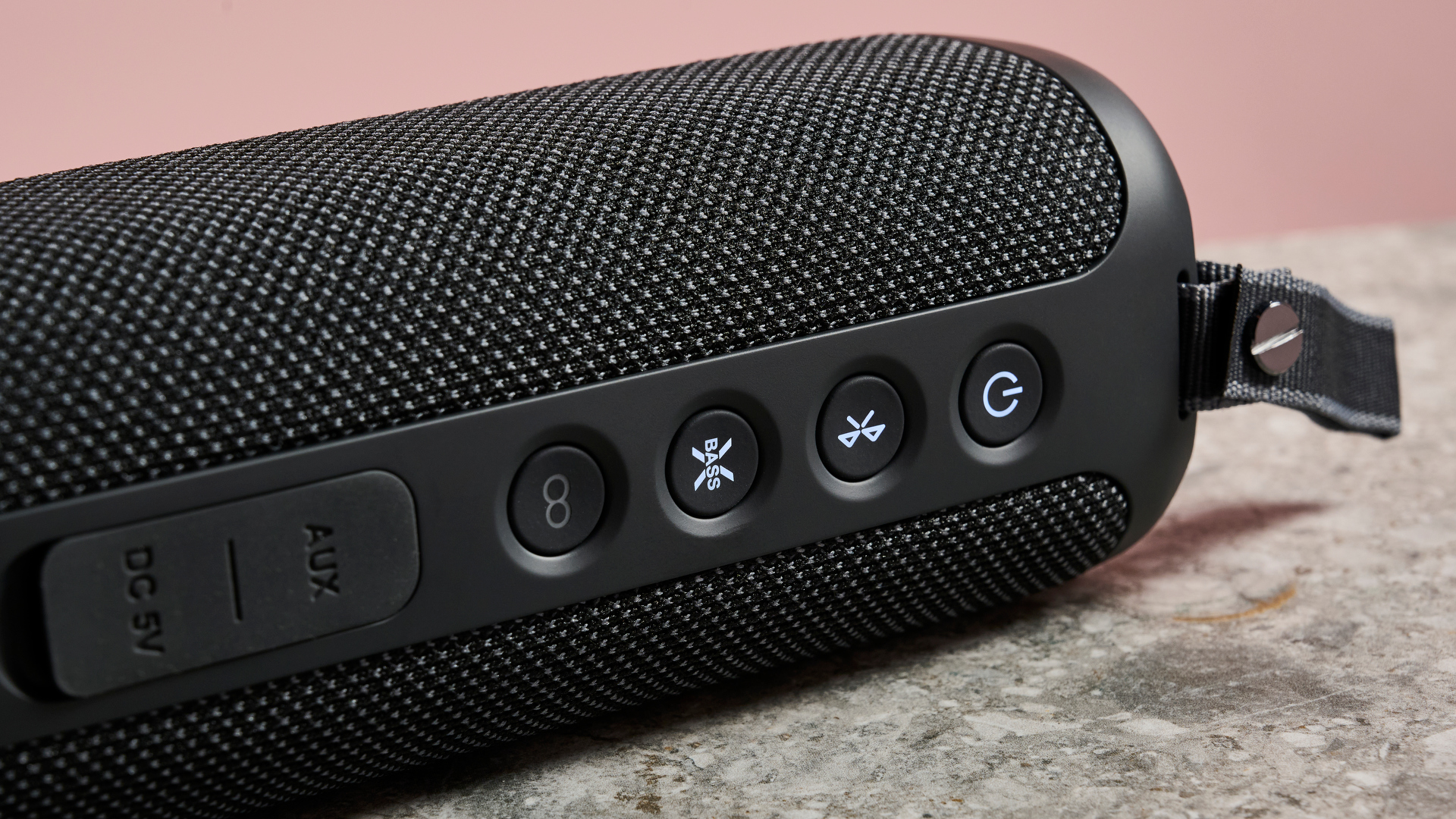
Tribit StormBox 2 review: features
- Flexible sound profile and EQ options
- No Wi-Fi or less lossy codecs
- Insane 24+ hours battery life
The Tribit StormBox 2 possesses two 48mm full-range drivers that rock a combined power of 34W. While the 70HZ – 20KHz frequency range these drivers deliver isn’t exactly going to give you gut-punching sub bass, it’s still decent enough for such a compact unit. In addition, it's also capable of 360-degree sound – something you’ll be thankful for any time you’re listening to it in big groups.
Want even more room-filling sound? You’re in luck: you can chain several StormBox 2s together. Hit the TWS button on your connected StormBox 2 and then press the same button on a compatible Tribit speaker and they’ll form a stereo pair. Alternatively, for those more worried about achieving window-rattling volume, you can press the TWS button again and they’ll switch to a mono Party mode.
It's possible to augment the sound in other ways as well. Not only can its XBass button switch on the Tribit’s bass-boosting audio profile, but if you fire up the app, you can access four other sound modes: Audiobook, Classical, Rock and Jazz. However, those looking for granular control over their music will get the most use out of its nine-band EQ – this both lets you tweak the sound balance to your heart’s content and create your own custom profiles, something that quite a few more expensive models still lack.
Given the price, it will hardly be news that the StormBox 2 doesn’t pack the fancier features of premium Bluetooth speakers such as the Sonos Roam 2. While its connection utilizes Bluetooth 5.3, you’re out of luck for Wi-Fi connectivity or higher-res codecs such as LDAC or ALAC. And if you’re looking for the auto-tuning smarts that some high-end speakers offer, forget it: you’re never going to find it in a speaker this cheap.
Where the StormBox 2 does shine over almost any other speaker, however, is its battery life; it makes the Energizer Bunny look like a bone-idle clock-watcher. Tribit estimates the speaker will last you up to 24 hours of solid listening time. Wanting to put this to the test, I ran it for six hours at 50% volume, during which it lost less than 20% of its battery. At that rate, you could potentially eke out up to 30 hours use out of it, which is just ludicrous – even my most epic, 22-hour-long playlist wouldn’t come close to tuckering out this speaker.
- Features score: 4/5
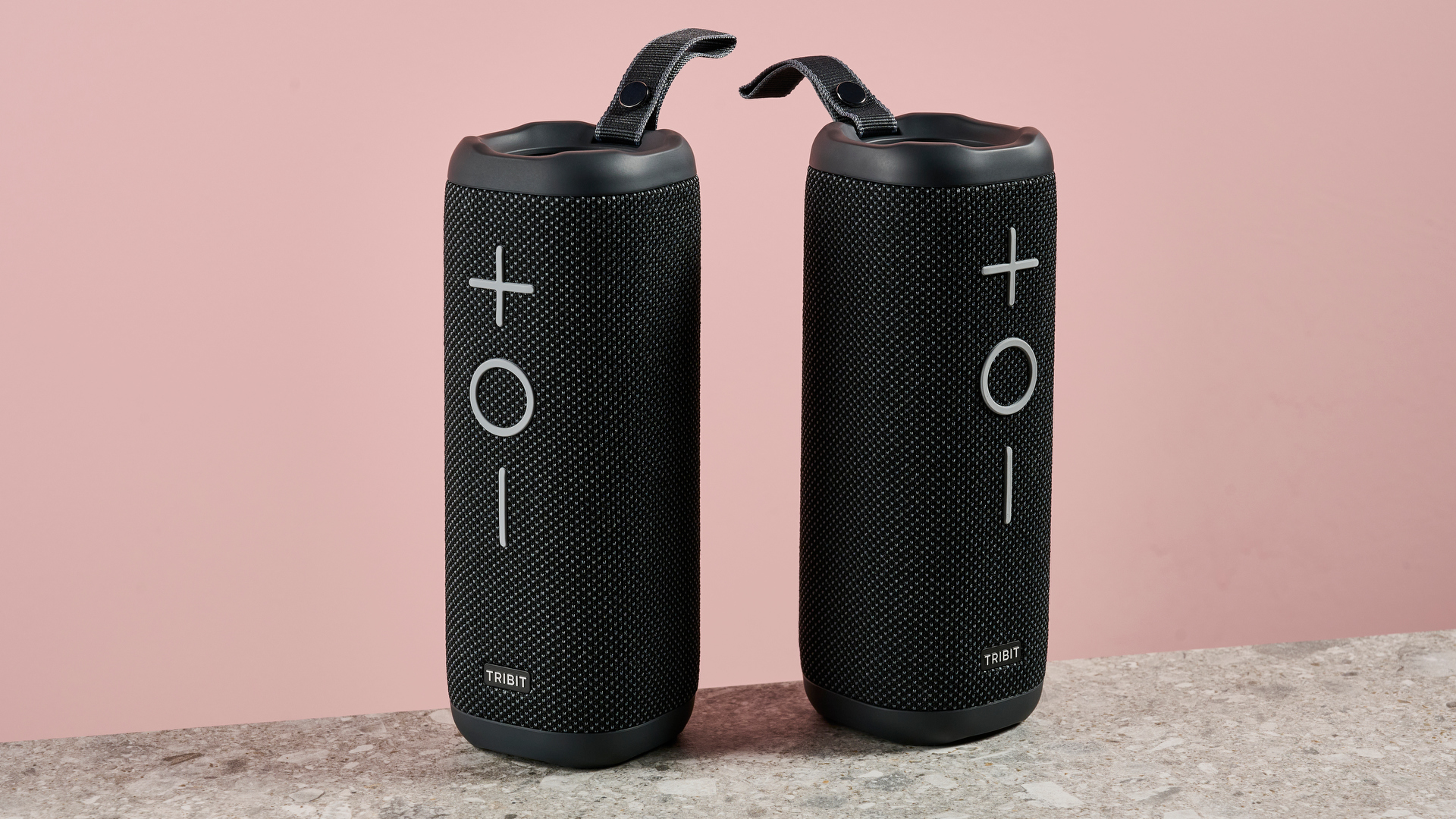
Tribit StormBox 2 review: sound quality
- Lush mids and rich bass – but only in XBass mode
- Premium speakers offer more precision and clearer soundstage
- Capable of eardrum-perforating volume
For its price, the Tribit StormBox 2 offers impressive sound. Firing up St. Thomas by Sonny Rollins, I was instantly struck by how crisp and immediate the toms sounded. The richly timbred sax soars above everything, while beneath it you can still hear the piano line nice and clear, something not all speakers could have delivered so well. All in all, I have little to complain about when it comes to the middle of the mix.
As is often the case with budget Bluetooth speakers, though, the StormBox 2 does occasionally trip over itself at the high end. Sometimes, the bite of the guitars in Fleetwood Mac’s Go Your Own Way sounded a little over-keen to me, like the treble was a bit overdriven and the speaker wasn’t quite able to bring out enough of their bass tones to soften them.
This hypothesis was borne out when probing the lower frequencies the speaker could manage. Playing something with a bit of low-end heft, such as Nobody But You by George Fitzgerald, the StormBox does an admirable job of communicating the low-mids. However, when you compare it to the dynamic punch of bassier speakers such as the JBL Flip 6, everything feels a little looser in the lowest frequencies. It’s just a little too soft to have any impact, like being hit by a cotton-candy cannonball.
Fortunately, there is a way to take care of this. Flicking on XBass mode helped mitigate some of that wooliness. The kick just has a bit more punch, while the bassline resonates much more, giving the whole sound more glue, even while preserving delicate elements such as that piano line. Even though it’s lacking those under 70Hz sub tones, XBass really helps to give things more conviction and I found myself just leaving it on by default.
When putting its pairing options to the test, I was pleasantly surprised by how convincing a stereo field two linked StormBox 2’s created. Listening to my go-to stereo testing track, Manchild by Eels, there was no appreciable lag between each unit and the separation was precise. The samples were appropriately separated on each side of the mix, while the harmonizing of E’s vocals washed over me from either ear, creating a gorgeous layered effect. Not bad for $135.98 / £120 / AU$258, all in.
Despite this, comparing the whole sound to a five-star speaker such as the Sonos Roam 2, the difference between their two audio profiles was pretty clear to me. While the Tribit is undeniably punchier – at least with XBass mode on, anyway – the Sonos is far more discriminating, giving each element in the mix greater separation and breathing room. Naturally, you’d expect better poise from the Roam 2’s less lossy audio codecs, but it's worth considering the capability of a more premium speaker.
However, what the StormBox 2 lacks in finesse it more than makes up for in terms of sheer volume. For the vast majority of contexts, I found 50% volume was high enough to flood the room with confident, 360-degree sound. Cranking up the volume as high as 80% did finally start to show some ragged edges and limiting, but this was also past the level where the loudness had started to hurt my ears. In the vast majority of scenarios, this speaker is plenty loud enough without sacrificing too much in terms of quality.
- Sound score: 3.5 / 5
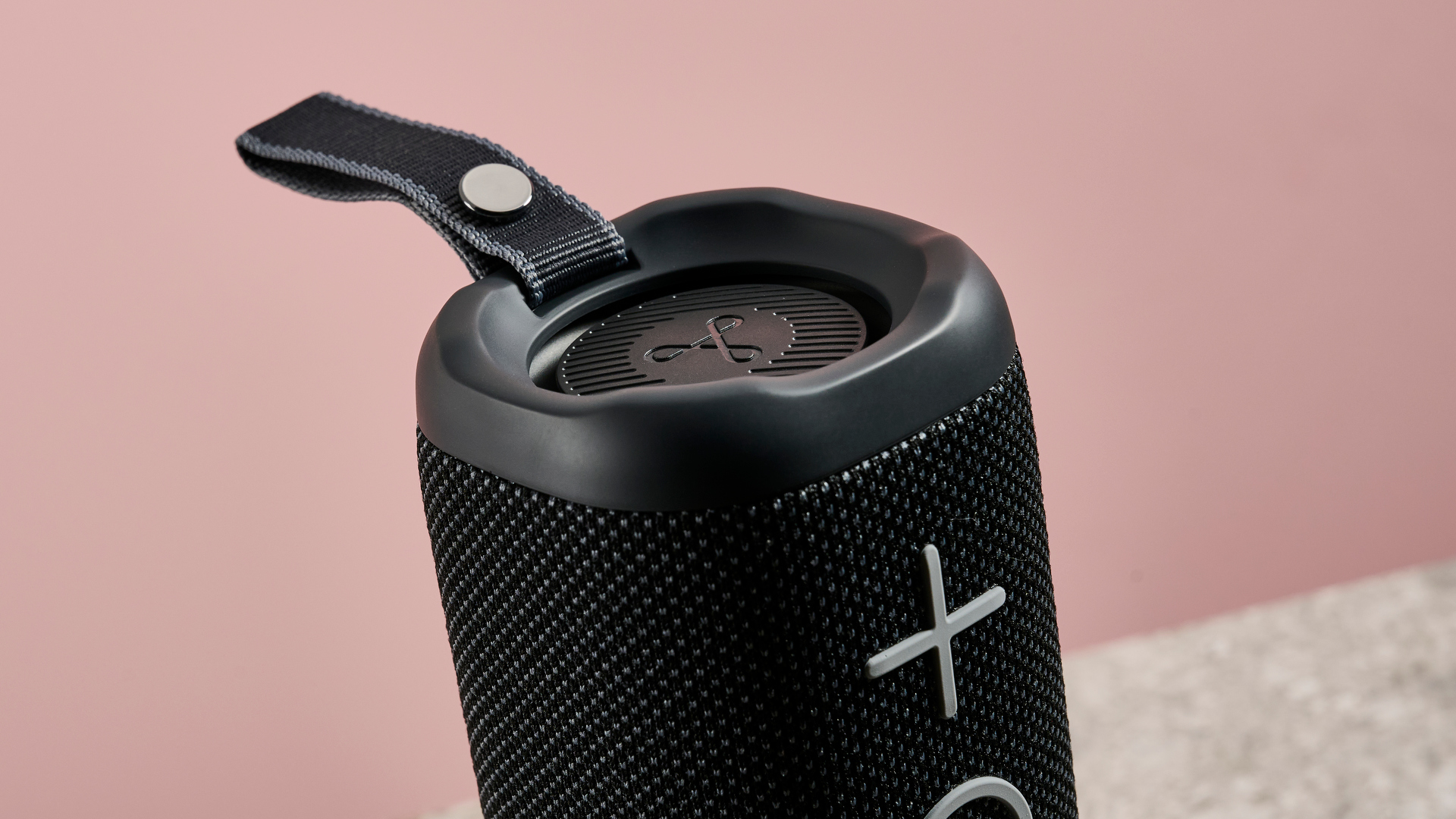
Tribit StormBox 2 review: design
- Not the most exciting design
- Strap isn’t that usable
- Rugged build and IPX7 waterproofing
When it comes to its looks, the Tribit StormBox 2 hardly reinvents the wheel. It’s the kind of cylindrical-ish unit with drivers either end that’s almost so familiar at this point to be a design cliche. It also features three rubberised buttons on its face – a circular play / pause and a giant volume plus and minus combo. There are no vibrant color options on offer here, either. To paraphrase the industrialist and automotive pioneer Henry Ford: "look, it comes in black – like it or lump it".
But not every speaker has to be an aesthetic revolution. And the StormBox 2 is pleasing enough: the fabric that wraps around its core feels hard-wearing yet pleasant to the touch. Thanks to its 2.72-inch (69mm) depth, it sits comfortably enough in your grip, while a weight of just 1.54lbs (699g) means it’s easy enough to carry around wherever you go. Its strap is a bit of a misstep, though: you can’t easily unclip it, making it hard to loop it through a belt loop or bag strap, so you’re purely reliant on your meathooks here.
The Tribit is also suitably rugged. Thanks to its sturdy build and rigid end-caps, it should survive knocks and falls without anything more than cosmetic damage. On top of this, its IPX7 rating protects it from a plunge in up to 1m for up to 30 minutes. To test this out, I sprayed some water over it and allowed it to dry before powering it up again. I also gave it a thorough baptizing in TechRadar’s testing tank, first letting it merrily bob along on the surface before fully submerging it for a minute. I’m pleased to say that it bounced back from both of these dousings with zero damage, coming out of it sounding as responsive as ever, which puts it up there with many of the best waterproof speakers.
- Design score: 3 / 5
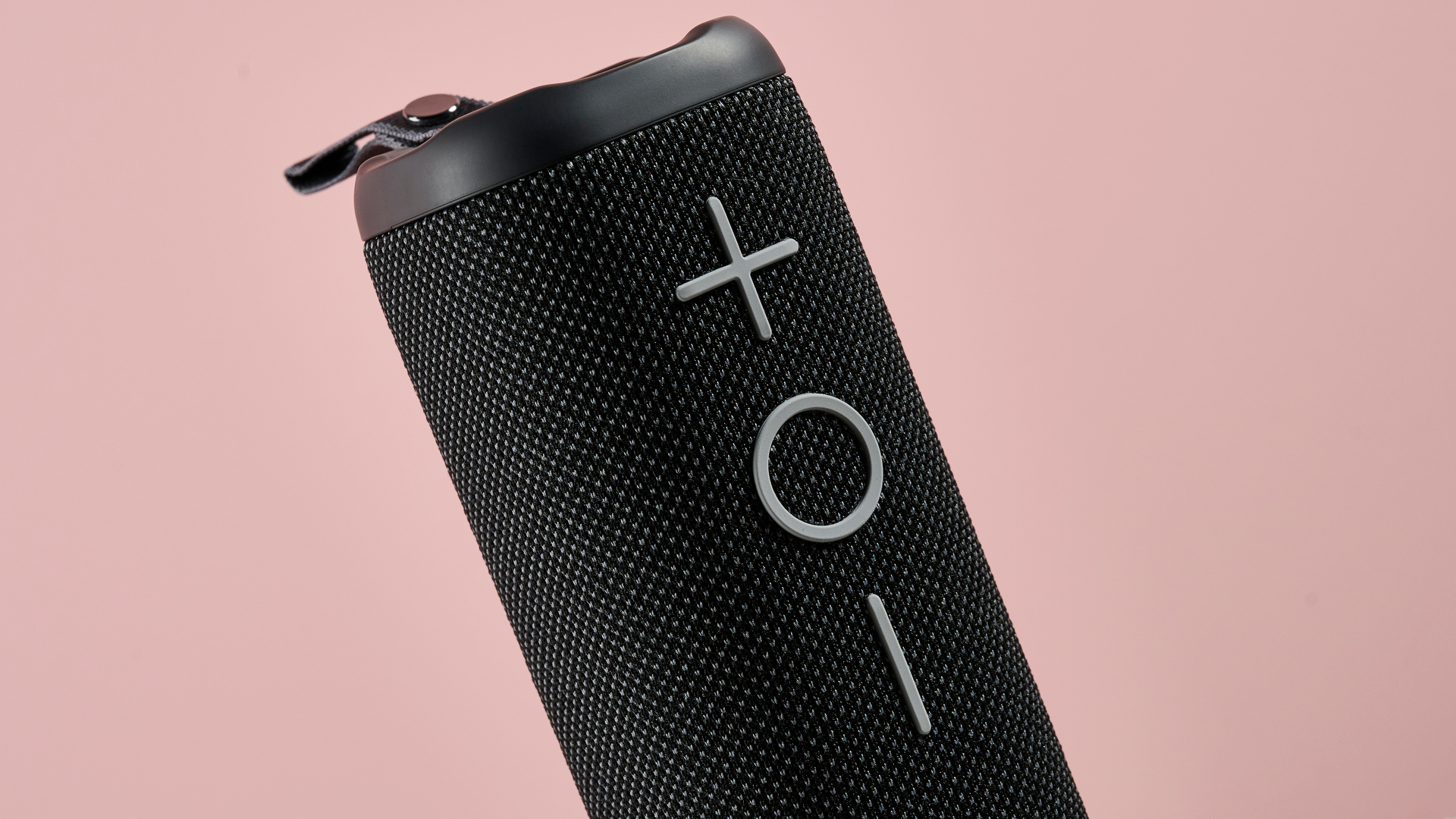
Tribit StormBox 2 review: value
- Cheaper than any similar sounding rivals
- Not a match for more premium speakers
When doing a side-by-side comparison, the Tribit StormBox 2 obviously isn’t going to beat more expensive speakers such as the Roam 2 or even the JBL Flip 6. You can’t expect the kind of precision and quality that pricier components and less lossy codecs can deliver.
However, what the StormBox 2 does for its price is seriously impressive. With its speakers, Tribit is helping to redefine what you can expect from the bargain end of the market. If the biggest thing you care about is getting as much value as you can squeeze out $67.99 / £60 / AU$129, this is the speaker you should choose. If you’re wanting thumping bass or audiophile-grade sound, you’ll have to spend a bit more to get it.
- Value score: 5/5
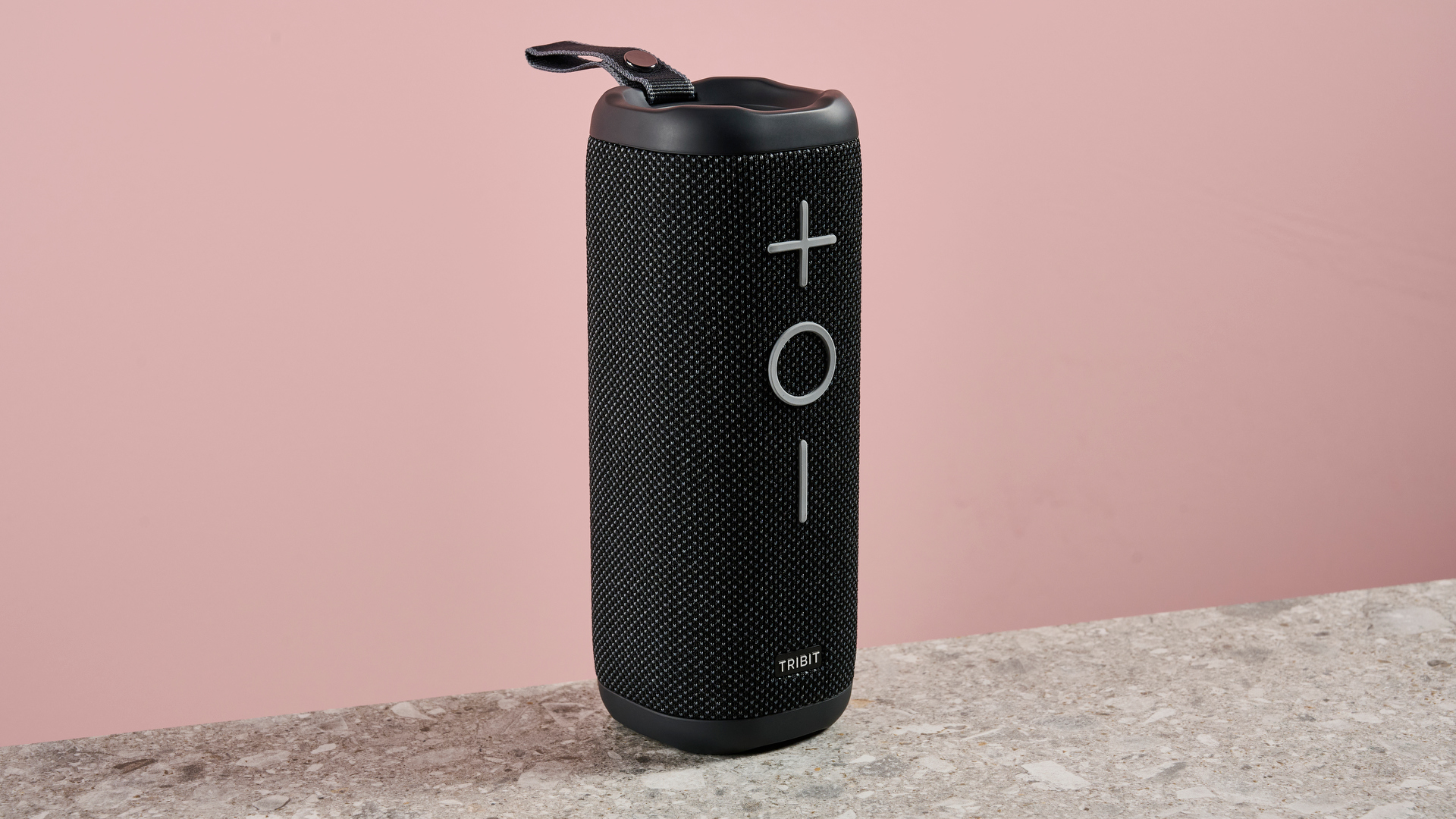
Should you buy the Tribit StormBox 2?
Buy it if…
Don’t buy it if…
Tribit StormBox 2 review: also consider
Tribit StormBox 2 review: how I tested
- Tested the device over two weeks using multiple sources
- Compared it the Sonos Roam 2 and JBL Flip 6
- Used specific benchmarking tests to assess battery and waterproofing
I tested the Tribit StormBox 2 over the course of two weeks. I listened to the TechRadar testing playlist and tracks in a variety of different genres to make sure I’d built up an accurate picture of its sonic profile. In addition, I used multiple sources, including Spotify and Apple Music. I compared it side by side with other class-leading Bluetooth speakers, including the Sonos Roam 2 and JBL Flip 6.
To test its battery, I ran the speaker for six hours at 50% volume to see how much it declined, before dividing this by the amount the battery had decreased to get its overall playing time. To test the waterproofing, I sprayed the speaker with water, dried it out and tested its functionality again, as well as fully submerging the speaker in 12 inches (30cm) of water and doing the same.
I have over 10 years of experience reviewing and writing about tech products and have tested many Bluetooth speakers, as well as other audio equipment, during that time. I’ve also spent many years producing audio and music, which has given me a lot of first-hand experience at assessing the performance of audio products.



.png?w=600)



